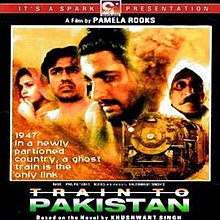
The Partition of India in 1947 was the change of political borders and the division of other assets that accompanied the dissolution of the British Raj in the Indian subcontinent and the creation of two independent dominions in South Asia: India and Pakistan. The Dominion of India is today the Republic of India, and the Dominion of Pakistan—which at the time comprised two regions lying on either side of India—is now the Islamic Republic of Pakistan and the People's Republic of Bangladesh. The partition was outlined in the Indian Independence Act 1947. The change of political borders notably included the division of two provinces of British India, Bengal and Punjab. The majority Muslim districts in these provinces were awarded to Pakistan and the majority non-Muslim to India. The other assets that were divided included the British Indian Army, the Royal Indian Navy, the Royal Indian Air Force, the Indian Civil Service, the railways, and the central treasury. Provisions for self-governing independent Pakistan and India legally came into existence at midnight on 14 and 15 August 1947 respectively.
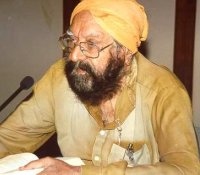
Khushwant Singh was an Indian author, lawyer, diplomat, journalist and politician. His experience in the 1947 Partition of India inspired him to write Train to Pakistan in 1956, which became his most well-known novel.

The Radcliffe Line was the boundary demarcated between the Indian and Pakistani portions of the Punjab Province and Bengal Presidency of British India. It was named after Cyril Radcliffe, who, as the joint chairman of the two boundary commissions for the two provinces, had the ultimate responsibility to equitably divide 175,000 square miles (450,000 km2) of territory with 88 million people.

"Tryst with Destiny" was an English-language speech by Jawaharlal Nehru, the first Prime Minister of India, to the Indian Constituent Assembly in the Parliament House, on the eve of India's Independence, towards midnight on 14 August 1947. The speech spoke on the aspects that transcended Indian history. It is considered to be one of the greatest speeches of the 20th century and to be a landmark oration that captures the essence of the triumphant culmination of the Indian independence movement against British colonial rule in India. He declared the end of the colonial era and called on citizens to recognize the promise and opportunity of the moment:
"Long years ago, we made a tryst with destiny. Now the time has come when we shall redeem our pledge - not wholly or in full measure - but very substantially. At the stroke of the midnight hour, when the world sleeps, India will awake to life and freedom. A moment comes, but rarely in history, when we step out from the old to the new, when an age ends, and when the soul of a nation, long suppressed, finds utterance."
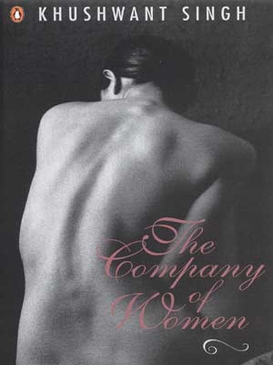
The Company of Women is a novel by Indian author Khushwant Singh about a divorced man's extensive sexual exploits. The novel also addresses themes of globalization and the hedonistic lifestyles of the newly wealthy upper-middle class.

Ambala district is one of the 22 districts of Haryana State of India. District Ambala lies on the North-Eastern edge of Haryana and shares their borders with other districts Kurukshetra, Yamunanagar, Panchkula of Haryana State & Patiala, SAS Nagar of Punjab State and Sirmaur of Himachal Pradesh State. Ambala district is a part of Ambala Division which is the division of Ambala, Kurukshetra, Yamunanagar and Panchkula. Ambala has four sub divisions are Ambala City, Ambala Cantt, Barara and Naraingarh which contains four tehsils are Ambala or Ambala City, Ambala Cantt, Barara and Naraingarh they further contains three sub tehsils Shahzadpur, Mullana, Saha. Ambala town serving as the administrative headquarters of the district. Ambala town has two sub-areas: Ambala Cantonment and Ambala City, eight kilometres apart, therefore it is also known as "Twin City". It has a large Indian Army and Indian Air Force presence within its cantonment area. It is located 200 km to the north of New Delhi, India's capital and 45 km to the south of Chandigarh, Haryana's capital.

Train to Pakistan is a historical novel by writer Khushwant Singh, published in 1956. It recounts the Partition of India in August 1947 through the perspective of Mano Majra, a fictional border village.
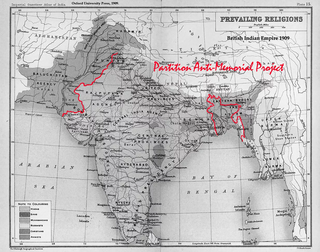
The Partition of India and the associated bloody riots inspired many creative minds in the republics of India, Pakistan, and Bangladesh to create literary/cinematic depictions of this event. While some creations depicted the massacres during the refugee migration, others concentrated on the aftermath of the partition in terms of difficulties faced by the refugees in both side of the border. Even now, more than 60 years after the partition, works of fiction and films are made that relate to the events of partition. W.H. Auden in his poem "Partition" showed the dilemmas of Cyril John Radcliffe, 1st Viscount Radcliffe, responsible for deciding which parts of India went where.
Delhi: A Novel is a historical novel by Indian writer Khushwant Singh published in 1990. The novel was a bestseller in India when first published but received little critical attention compared to Amitav Ghosh's novel The Shadow Lines that also covered the 1984 anti-Sikh riots.

Sardar Gurbachan Singh was a Sikh scholar, professor, and author. He was born in Moonak, Sangrur district. He was a lecturer at the Sikh National College at Lahore. At the Banaras Hindu University he held the Guru Nanak Chair of Sikh Studies. He received the Padma Bhushan in 1985. He received in 1985 the National fellowship by the Indian Council of Historical Research, New Delhi.

Is Raat Ki Subah Nahin is a 1996 Indian Hindi-language thriller film directed by Sudhir Mishra. The film stars Tara Deshpande and Nirmal Pandey, with the entire plot taking place over a single night. The film is based on a story written by Sudhir Mishra's brother, Sudhanshu Mishra, who died in 1995.
Smriti Mishra is an Indian actress, most known for her roles in Shyam Benegal's Sardari Begum (1996), Sudhir Mishra's Is Raat Ki Subah Nahin (1996), Pamela Rooks's Train to Pakistan (1998), Manish Tiwary's Dil Dosti Etc (2007) and Vijay Singh's Jaya Ganga (1996).
Pamela Rooks was an Indian film director and screenwriter, most known for the film, Train to Pakistan (1998) set in Partition of India and based on Khushwant Singh's novel; it was screened at several international film festivals. Apart from that accomplishment she also made award-winning films like, Miss Beatty's Children (1992) and Dance Like a Man (2004) and several documentaries.
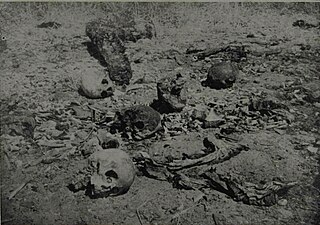
The 1947 Rawalpindi massacres refer to widespread violence, massacres, and rapes of Hindus and Sikhs by Muslim mobs in the Rawalpindi Division of the Punjab Province of British India in March 1947. The violence preceded the partition of India and was instigated and perpetrated by the Muslim League National Guards—the militant wing of the Muslim League—as well as local cadres and politicians of the League, demobilised Muslim soldiers, local officials and policemen. It followed the fall of a coalition government of the Punjab Unionists, Indian National Congress and Akali Dal, achieved through a six-week campaign by the Muslim League. The riots left between 2,000 and 7,000 Sikhs and Hindus dead, and set off their mass exodus from Rawalpindi Division. 80,000 Sikhs and Hindus were estimated to have left the Division by the end of April. The incidents were the first instance of partition-related violence in Punjab to show clear manifestations of ethnic cleansing, and marked the beginning of systematic violence against women that accompanied the partition, seeing rampant sexual violence, rape, and forced conversions, with many women committing mass suicides along with their children, and many killed by their male relatives, for fear of abduction and rape. The events are sometimes referred to as the Rape of Rawalpindi.
Boota Singh sometimes spelled as Buta Singh, was a Sikh ex-soldier of the British Army who served at the Burma front under the command of Lord Mountbatten during World War II. He is popularly known in India and Pakistan for his tragic love story with Zainab, a Muslim girl he rescued during the communal riots in the time of partition of India in 1947. They both fell in love and got married. Later, being a Muslim, Zainab was deported by Indian authorities and sent to the newly created Pakistan. Singh illegally entered Pakistan to reinstate contact with Zainab, but she ended the marriage under pressure from her family. In 1957, after the failure of the marriage, he committed suicide by jumping before an upcoming train near Shahdara station in Pakistan along with his daughter, but she survived.
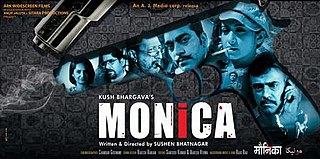
Monica is a 2011 Indian Hindi-language drama film written and directed by Sushen Bhatnagar, starring Divya Dutta, Ashutosh Rana and Rajit Kapur, and produced by Anup Jalota and Kush Bhargava. It is directed by Sushen Bhatnagar and is inspired from real life incidents such as the Shivani Bhatnagar murder case and the 2G spectrum case.

Miss Beatty's Children is a 1992 English-language Indian drama film directed by Pamela Rooks in a directorial debut, with Jenny Seagrove, Faith Brook and Protima Bedi in lead roles. The film set in 1936 in South India, was based on Pamela Rooks own novel by the same name.

Viceroy's House is a 2017 fictional drama film directed by Gurinder Chadha and written by Paul Mayeda Berges, Moira Buffini, and Chadha. The film stars Hugh Bonneville, Gillian Anderson, Manish Dayal, Huma Qureshi, and Michael Gambon. It was selected to be screened out of competition at the 67th Berlin International Film Festival.

Mantostaan is a 2017 Indian film directed by Rahhat Shah Kazmi. The film is based on the four short stories of the Urdu writer Saadat Hasan Manto - "Thanda Gosht", "Khol Do", "Assignment", and "Akhiri Salute".
